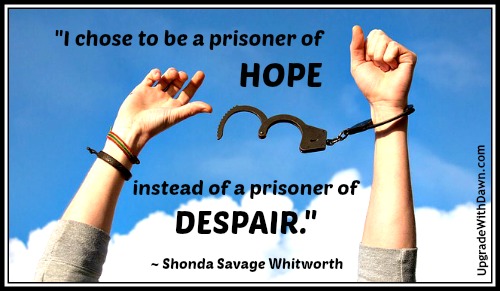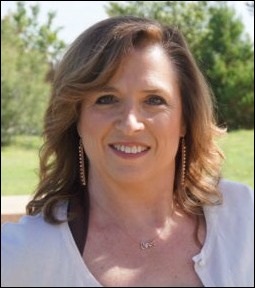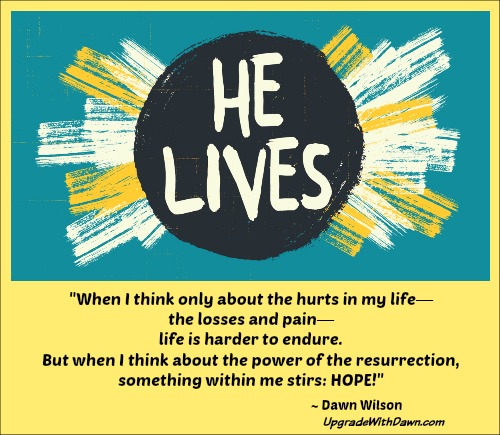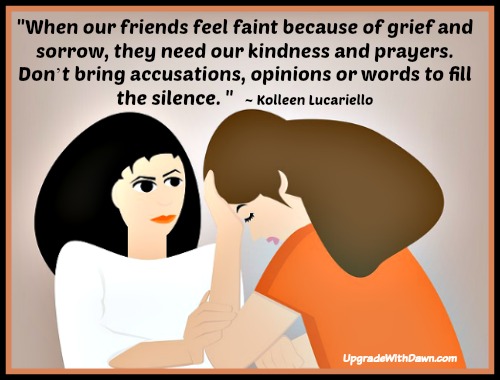Memos from Mama
Deb DeArmond writes about relationships and her relationship with her mama has some great lessons for all of us. In this Mother's Day UPLIFT, she writes about communicating truth with "mama-inspired" confidence.
"Laughter," Deb says, "is the shock absorber that softens the blows of life."
I (Dawn) am sure we all have fun sayings and words of advice from parents and grandparents. My grandpa's favorite to me was, "Don't just sit there like a lump on a pickle." But Deb's mama was especially wise.
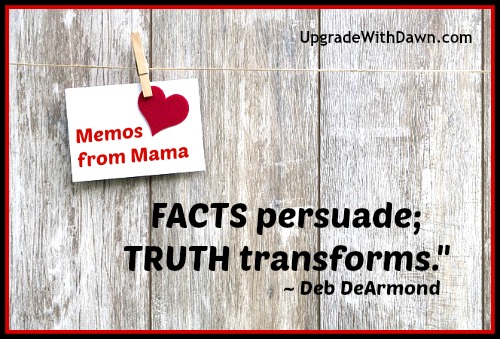 Deb continues . . .
Deb continues . . .
My head is filled with memos from mama.
- "The only person who really likes change is a wet baby."
- "Don't make me take you to the north forty"—the last warning before a spanking.
- "If you had everything, where would you put it?"
My mother had an interesting and pragmatic outlook on life. And enough unusual expressions to create her own dictionary.
She’s been gone nearly 20 years, and still, I’m stunned at how often in the midst of a challenge, heartbreak or opportunity, I hear her voice.
- Usually a soft supportive tone, meant to encourage.
- Occasionally, a bit sharper, to help redirect my thinking when I might not get it quickly enough to make the best choice.
I can’t count the times her words have echoed in my heart and set me on the right path.
Down-to-earth, practical, and no-nonsense advice is tough to come by these days. Sometimes the facts are inconvenient or uncomfortable to address.
And it seems the older I get, the more political correctness and sensitivity training I’m exposed to. I believe it’s caused us to move further from telling it like it is—with love—and the more watered down our message becomes.
Please don’t misunderstand. I’m not an advocate for using the truth as a battering ram.
- I support speaking up when it can advance the cause of Christ.
- The truth is also essential when we have the opportunity to build up, encourage, or exhort others to live more like Jesus. That is what the word of God asks us to do: “Speak the truth in love...” (Ephesians 4:15a).
Truth is compelling. It has the power to touch the heart and bring our thoughts and actions into alignment with the life Jesus died to redeem.
Facts persuade. Truth transforms.
Here are three practical ways to express truth with mama-inspired confidence.
1. Pray before you speak.
Be certain it’s the truth you’re sharing and not your opinion. It’s a short hop and a skip from expressing our opinion to judgment.
Asking God’s Spirit to help us distinguish between the truth and our opinion fulfills the remainder of the verse in Ephesians 4:15—"let’s grow in every way into Christ.”
The truth is found in Christ, not our version of life as it should be.
2. Truth will set you free, too.
The truth receiver and the truth teller are blessed in the process.
When we walk fully in the truth, we are free—released and confident to share it with others, assured it will convey the message of our heart.
The ability to express our concern comes easily and communicates love, not criticism.
We can’t shame people onto the right path; encouragement and exhortation of God’s word must be the foundation.
3. Don’t over-communicate your message.
Mama’s messages spoke to my heart because they made me think.
Her truth, God’s truth, could become my truth only when communicated with love not lecture.
The battering ram rarely finds an open heart.
Jude 1:20 reminds us to build one another in the faith.
What message is God waiting for you to deliver? What’s holding you back? Fight truth decay and share it—in love—today!
 Deb DeArmond is an expert in the fields of communication, relationship, and conflict resolution. Deb’s books help readers create the life God meant marriage and family to be. Read her at: Family Matters/Deb DeArmond.
Deb DeArmond is an expert in the fields of communication, relationship, and conflict resolution. Deb’s books help readers create the life God meant marriage and family to be. Read her at: Family Matters/Deb DeArmond.
Graphic adapted, courtesy of Bru-nO at Pixabay.
 1 Comment → Posted on
1 Comment → Posted on  Tuesday, April 30, 2019 at 8:52AM
Tuesday, April 30, 2019 at 8:52AM  Deb DeArmond,
Deb DeArmond,  Expressing Truth,
Expressing Truth,  Truth,
Truth,  Truth is compelling,
Truth is compelling,  Truth transforms,
Truth transforms,  Upgrade with Dawn Upgrade Your Life
Upgrade with Dawn Upgrade Your Life  Communication,
Communication,  Mother's Day
Mother's Day 





